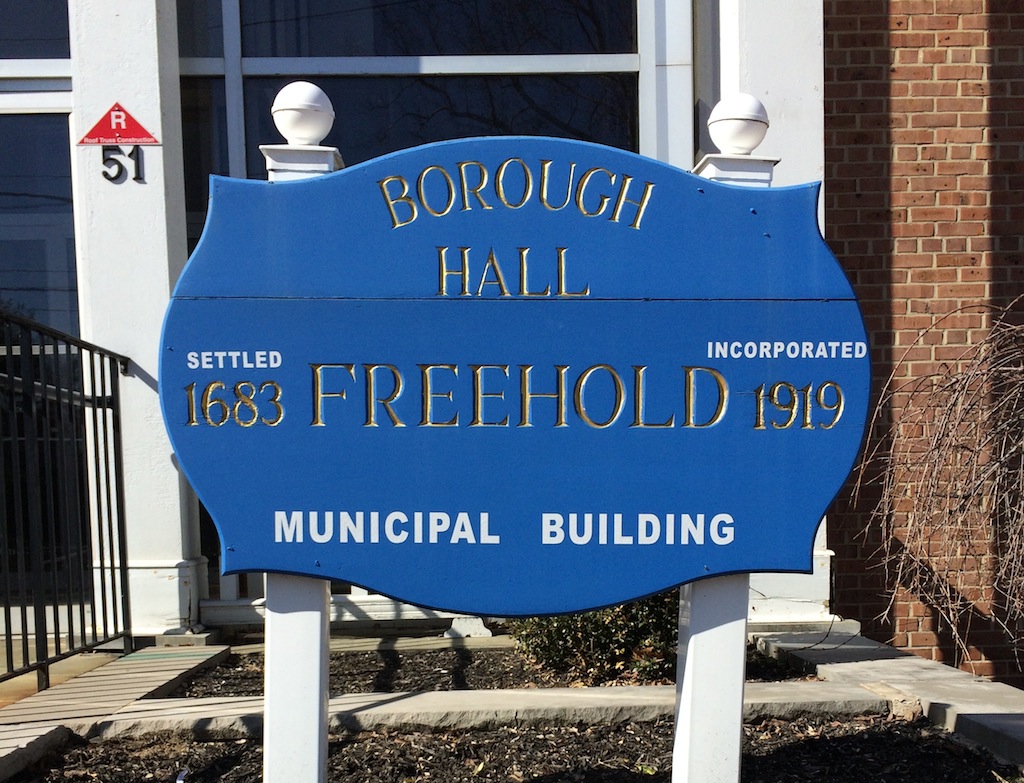FREEHOLD – The possibility of constructing a new water treatment plant in Freehold Borough is being explored by members of the Borough Council.
A financial analysis and review of the existing water treatment plant was presented during a Jan. 29 special meeting by Meghan Bennett Clark and James Fearon of GluckWalrath LLP, the borough’s bond counsel, and by Michael Hanley of NW Financial Advisory, a financial advisor to state and local governments and authorities.
Featured in the report were the costs of maintaining the water treatment plant and the entities that could own the plant if officials decide to sell the utility.
According to the report, the total system needs of the treatment plant are about $12 million, with $4.4 million to construct a new facility and a probable permanent debt service of $625,000. The cost of a new plant does not include land, legal, permitting and engineering fees.
The treatment plant could remain secured by the municipality, be sold to a private entity, secured through a concession agreement or sold/leased to a private entity, according to the report.
As stated in the report, the plant’s estimated water and sewer rates would be significantly higher if the infrastructure were to be operated by a private entity instead of by the borough.
The use of 21,000 gallons of water in a quarter would cost $171 with a private entity, compared to the borough’s rate of $76, and 21,000 gallons would yield a sewer fee of $293 per quarter ($1,172 annually) with a private entity and $236 per quarter ($944 annually) with the borough.
The report discussed on Jan. 29 follows an analysis of the existing water treatment plant that was conducted by the firm of Mott MacDonald and presented to the council by engineer Brian Dougherty in 2016.
At that time, Dougherty said the existing treatment plant on Waterworks Road is maintained and operational with no major service disruptions. He said operators are meeting New Jersey Department of Environmental Protection finished water quality standards.
However, he said the treatment plant was constructed more than 65 years ago and was most recently upgraded 40 years ago. He reported that the plant’s primary equipment is approaching the end of its useful life.
The plant was constructed in 1949 and had four pressure filters, an aeration system and a detention tank, according to Dougherty. In the mid-1960s, the plant was expanded to include two additional pressure filters.
The most recent upgrade occurred in 1977 with the addition of two more pressure filters, a backwash waste water basin and sludge drying beds.
Dougherty cited several deficiencies at the plant and told council members that four filters, the aeration tank, the detention tank, the power distribution system and the control system are nearing the end of their useful life.
He said the control system has minimal monitoring and alarm functionality, and he reiterated the issues caused by aging equipment.
Furthermore, the treatment plant faces a flooding concern because it is adjacent to McGellairds Brook and within the borough’s 100-year floodplain. The plant was temporarily shut down during post-tropical storm Irene in 2011 due to flooding, according to Dougherty.
Although improvements could be made to address issues the plant is facing, the improvements would not address the flooding concerns, the pressure filters or the aeration and detention tanks reaching the end of their useful life.
Dougherty recommended building a new water treatment plant on the borough’s well field across Waterworks Road from the existing plant.
Business Administrator Joseph Bellina also recommended the construction of a new water plant.
At the Jan. 29 meeting, Mayor Nolan Higgins, council President Sharon Shutzer and Councilman Kevin Kane voiced their support for the construction of a new water treatment plant.
“What is in the best interests of our residents is to go with building a new water plant,” said Shutzer, who compared the construction of a new facility to buying a new car when an aging vehicle needs its transmission replaced.
“If we continue to pay for improvements to the [current] plant, we are throwing money down a black hole,” she said.
“The (cost) of making repairs to the plant will be about the same as a new building and the new building won’t have the flood hazard,” Kane said.
Higgins, Shutzer and Kane voiced opposition to selling the municipality’s water treatment plant to a private entity.
“I am personally against any kind of privatization of the water system,” Shutzer said. “Private (ownership) is financially driven and we would lose control of the water system.”
Kane, who works in Jersey City, noted that water rates were privatized in nearby Bayonne, which he said caused rates to rise by a significant amount. He said selling Freehold Borough’s water treatment plant to a private firm would cause the town to lose Department of Public Works employees.
Councilmen Michael DiBenedetto and George Schnurr said they were leaning toward building a new plant and retaining municipal ownership of the utility, but were reluctant to move forward without input from all members of the governing body. Councilmen Jaye Sims and Ron Griffiths were absent that evening.
No official action was taken by the council at the meeting.

